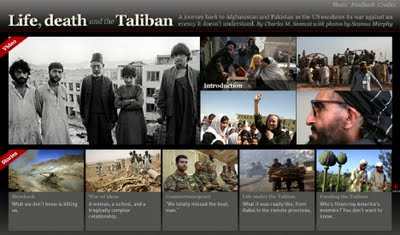 Like just about everyone else in the media world, I’m trying to make sense today of the WikiLeaks documents, the Pentagon Papers of our time.
Like just about everyone else in the media world, I’m trying to make sense today of the WikiLeaks documents, the Pentagon Papers of our time.
The documents — reported by the New York Times, the Guardian and Der Spiegel — show that the war in Afghanistan has been undermined by untrustworthy “friends” in the Pakistani intelligence service, chaos and duplicity in Afghanistan, and mistakes by American and allied forces leading to civilian casualties.
In a sense, it’s nothing we didn’t know, and the White House argues that the situation has been improving since President Obama charted his own course. (The most recent documents in the cache are from December 2009.) Still, like the Pentagon Papers, the documents offer official confirmation that things are (or at least were) as bad as we feared, if not worse.
I think WikiLeaks’ strategy of giving the three Western news organizations a month to go over the documents before making them public was brilliant. Earlier this year, WikiLeaks and its founder, Julian Assange, got a lot of attention over a video it had obtained of an American helicopter firing on civilians in Iraq, including two Reuters freelancers. Ultimately, though, it proved to be the wrong kind of attention — the heavy-handed editing made it appear more like an anti-American propaganda film than documentary evidence. (WikiLeaks also released a longer, unedited version.)
By contrast, in providing the latest documents to news organizations, Assange was able to get out of the way and let credible journalists tell the story. Jay Rosen, in a characteristically thoughtful post about WikiLeaks (“the world’s first stateless news organization”), thinks Assange did it because he knew the story wouldn’t get the attention it deserved unless the traditional media could break it.
I don’t disagree, but I think a more important reason is that the public will take it more seriously.
Also: At the Nation, Greg Mitchell has been rounding up links about the WikiLeaks story here and here.

